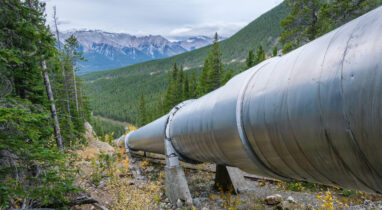Clean Prosperity Director of Policy and Strategy Brendan Frank made the following statement about the federal government’s 2023 Progress Report on the 2030 Emissions Reduction Plan (ERP), released today:
“The progress report on the federal government’s 2030 Emissions Reduction Plan is an important accountability tool to ensure that we’re making progress in decarbonizing the Canadian economy. The government has done a commendable job of detailing their policies and progress to date.
“But forthcoming modelling from Clean Prosperity and Navius Research suggests that the government’s projection that it will achieve a 36% reduction in emissions below 2005 levels by 2030 may be overly optimistic.
“Our modelling results suggest that without a government guarantee to de-risk investment, Canada could miss out on up to 33 megatonnes per year of emissions reductions by 2030.”
Clean Prosperity Director of Policy and Strategy Brendan Frank
“The federal government bases its projections on climate models that assume firms have total confidence in the durability of industrial carbon pricing. In reality, the future of industrial carbon pricing remains uncertain, and firms are reluctant to invest in low-carbon projects without government guarantees.
“Our modelling results suggest that without a government guarantee to de-risk investment, Canada could miss out on up to 33 megatonnes per year of emissions reductions by 2030.
“To guarantee these emissions reductions, the government needs to offer a broad-based program of carbon contracts for difference that guarantee the future value of carbon credits. Low-carbon projects are counting on these credits to generate revenue.
“The government’s 2023 Fall Economic Statement allocated $7 billion to the Canada Growth Fund (CGF) to deliver contracts for difference. The CGF needs to be ambitious in how it deploys this funding to deliver the emissions reductions that will be required to meet our ERP targets. That means guaranteeing credit prices at levels high enough to incentivize those reductions. The CGF’s contracts for difference offering should also be designed as a bridge to a broad-based program that makes contracts for difference available to emitters across the Canadian economy.
“To build on the progress outlined in the ERP Progress Report, the government should focus on policy measures that can deliver the greatest impact on emissions reduction by 2030. A broad-based contracts for difference program should be at the top of that list.”
Clean Prosperity will publish the results of its latest research, analyzing discrepancies in the government’s emissions-reduction projections, in early 2024.
For more information: media@cleanprosperity.ca




